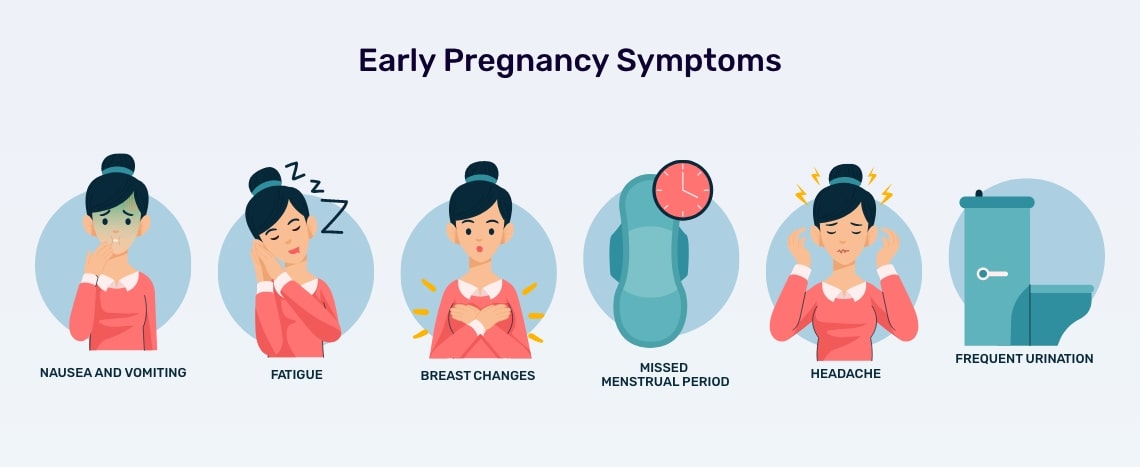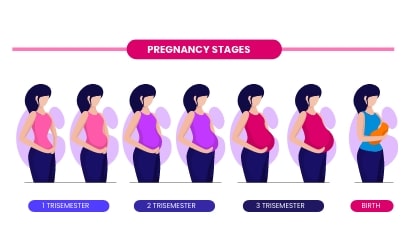Pregnancy Calculator: How to Use It?
Pregnancy is a transformative journey marked by significant physical, emotional, and hormonal changes as the body nurtures new life. Understanding key milestones, such as the due date, is essential for effective prenatal care and preparation.
A pregnancy calculator is a helpful tool that estimates your delivery date by considering the first day of your last menstrual period or the conception date. It provides an estimated timeline for each trimester, helping you monitor fetal development and schedule medical checkups.
When Should You Take a Pregnancy Test?
If you suspect that you might be pregnant, usually after a missed period, it is essential to take a pregnancy test. The most accurate time to test is one week after your missed period. This is because your body produces enough human chorionic gonadotropin (hCG), the hormone detected by pregnancy tests.
However, if you have an irregular menstrual cycle, consider testing at least 21 days after having unprotected intercourse.
Before taking a pregnancy test, consider looking into the early signs of pregnancy!

For the most reliable results, conduct the test on the first morning. It is because this urine contains the highest concentration of hCG.
|
📝Take a Note: Early testing may result in a false negative due to low hormone levels. In case the test is negative but you still think you might be pregnant, wait for a few days to conduct the test again. |
Pregnancy Journey- What You Should Know?

The first trimester (weeks 1–12) is a critical development phase. During this time, the embryo forms essential structures such as the brain, spinal cord, and heart, which begin to beat around week 6. By the end of this phase, the embryo becomes a foetus with developing organs.
In the second trimester (weeks 13–26), the foetus experiences rapid growth and features like fingers, toes, and facial characterstics become more defined. The placenta, which nourishes the foetus and removes waste, continues to develop.
The third trimester (weeks 27–40) involves significant growth and preparation for birth. The lungs mature, and the foetus gains fat to regulate body temperature after delivery. The uterus expands significantly to accommodate the growing baby, and hormonal changes prepare the body for labor.
Labour marks the final stage, where the uterus contracts to deliver the baby, completing the biological journey of pregnancy.
Pregnancy Calculator- Know How Your Delivery Due Date is Determined
A pregnancy date calculator helps estimate the delivery date using the first day of your last menstrual period (LMP). It works based on the average pregnancy duration of 40 weeks (280 days) from the LMP. Upon entering the date, the calculator provides an approximate due date, offering a timeline for each trimester during pregnancy.
This tool is helpful for women with regular menstrual cycles. For irregular cycles, consulting a healthcare provider for accuracy is highly recommended. The pregnancy week calculator also helps track fetal development stages, plan prenatal care, and prepare for labor.
While the pregnancy month calculator provides a close estimate, actual delivery dates may vary, as only a few babies are born on their predicted due date. For a precise assessment, an ultrasound performed by a healthcare professional can further refine the due date estimation.
Pregnancy Due Date Calculator- How Does it Work?
The formula for estimating the due date of your delivery is as follows:
Date of Last Menstrual Period + 9 Months + 7 Days= The Delivery Date
Let’s understand with an example!
Suppose the last menstrual period date was 18th November 2024. According to this date, the estimated delivery date will be:
18th Nov 2024 + 9 Months + 7 Days= 25th August 2025
Health Insurance Popular Searches
Health Insurance UAE | Dubai Health Insurance Cost | Health Insurance for Kids | Health Insurance Plans for Family | Dental Insurance | Individual Health Insurance | Health Insurance Abu Dhabi | Health Insurance Sharjah | How to check Medical Insurance status with Emirates ID | Best Medical Insurance in UAE | Health Insurance for Parents | Maternity Insurance UAE
More From Health Insurance
- Recent Articles
- Popular Articles









.png)















